#Social Media Transparency
Explore tagged Tumblr posts
Text
#Tags:Algorithmic Interference#Blue Check Mark Issues#Deliberate Interference#facts#Follower Removal#life#Platform Accountability#Podcast#Profile Manipulation#serious#Shadow Banning#Social Media Censorship#Social Media Transparency#straight forward#truth#upfront#website#X Censorship#Post navigation
0 notes
Text
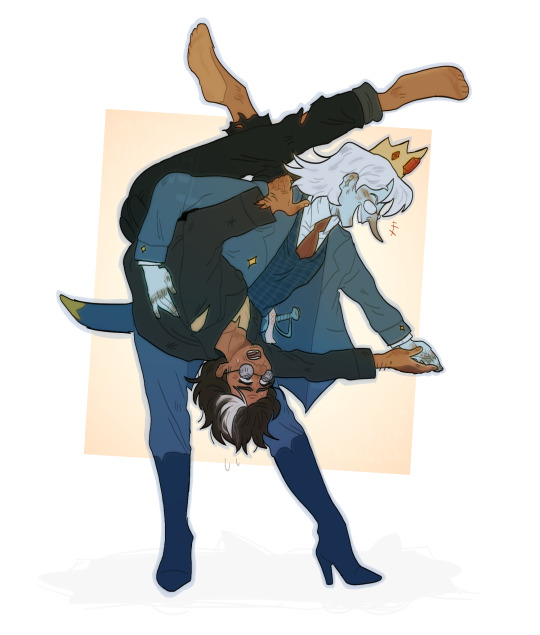
winter wonderland ❄
[Trasparent Version]
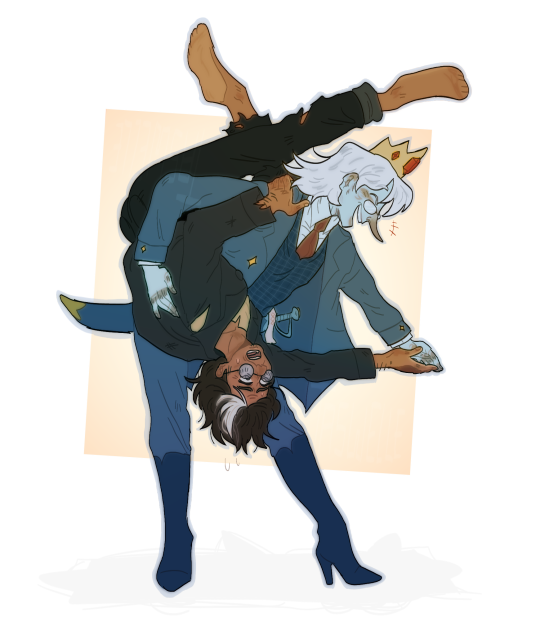
#oughhdjsj#im going insanee#my art#fionna and cake#adventure time#simon petrikov#the winter king#fionna and cake fanart#adventure time fanart#me estoy volviendo loco HELP ME#the transparent version is fucked up on my twt#i love social media
2K notes
·
View notes
Text
Can the PWHL please just post the updated CBA I’m tired of finding out new rules randomly like what is this. Then you have things like the new draft pick minimum salary and it’s like man just tell us what’s going on lol

(Source)
#I’m just annoyed that the pwhl doesn’t give us the technical info that has like#been crucial for sports talk in men’s hockey#no updated stat page no salary transparency no updated cba#it’s like people like talking contracts! they like talking roster construction! they like talking salary!#you want people to like make podcasts and articles and discussions on social media#they need to know these things
41 notes
·
View notes
Note
Hey! It has been on my mind lately and i just wanna ask..idk if it would make sense but i just noticed that nowadays ppl cant separate the authors and their books (ex. when author wrote a story about cheating and ppl starts bashing the author for romanticizing cheating and even to a point of cancelling the author for not setting a good/healthy example of a relationship) any thoughts about it?
I have many, many thoughts on this, so this may get a little unwieldy but I'll try to corall it together as best I can.
But honestly, I think sometimes being unable to separate the author from the work (which is interesting to me to see because some people are definitely not "separating" anything even though they think they are; they just erase the author entirely as an active agent, isolate the work, and call it "objectivity") has a lot to do with some people being unable to separate the things they read from themselves.
I'm absolutely not saying it's right, but it's an impulse I do understand. If you read a book and love it, if it transforms your life, or defines a particular period of your life, and then you find out that the author has said or done something awful--where does that leave you? Someone awful made something beautiful, something you loved: and now that this point of communion exists between you and someone whose views you'd never agree with, what does that mean for who you are? That this came from the mind of a person capable of something awful and spoke to your mind--does that mean you're like them? Could be like them?
Those are very uncomfortable questions and I think if you have a tendency to look at art or literature this way, you will inevitable fall into the mindset where only "Good" stories can be accepted because there's no distinction between where the story ends and you begin. As I said, I can see where it comes from but I also find it profoundly troubling because i think one of the worst things you can do to literature is approach it with the expectation of moral validation--this idea that everything you consume, everything you like and engage with is some fundamental insight into your very character as opposed to just a means of looking at or questioning something for its own sake is not just narrow-minded but dangerous.
Art isn't obliged to be anything--not moral, not even beautiful. And while I expend very little (and I mean very little) energy engaging with or even looking at internet / twitter discourse for obvious reasons, I do find it interesting that people (online anyway) will make the entire axis of their critique on something hinge on the fact that its bad representation or justifying / romanticizing something less than ideal, proceeding to treat art as some sort of conduit for moral guidance when it absolutely isn't. And they will also hold that this critique comes from a necessarily good and just place (positive representation, and I don't know, maybe in their minds it does) while at the same time setting themselves apart from radical conservatives who do the exact same thing, only they're doing it from the other side.
To make it abundantly clear, I'm absolutely not saying you should tolerate bigots decrying that books about the Holocaust, race, homophobia, or lgbt experiences should be banned--what I am saying, is that people who protest that a book like Maus or Persepolis is going to "corrupt children", and people who think a book exploring the emotional landscape of a deeply flawed character, who just happens to be from a traditionally marginalised group or is written by someone who is, is bad representation and therefore damaging to that community as a whole are arguments that stem from the exact same place: it's a fundamental inability, or outright refusal, to accept the interiority and alterity of other people, and the inherent validity of the experiences that follow. It's the same maniacal, consumptive, belief that there can be one view and one view only: the correct view, which is your view--your thoughts, your feelings.
There is also dangerous element of control in this. Someone with racist views does not want their child to hear anti-racist views because as far as they are concerned, this child is not a being with agency, but a direct extension of them and their legacy. That this child may disagree is a profound rupture and a threat to the cohesion of this person's entire worldview. Nothing exists in and of and for itself here: rather the multiplicity of the world and people's experiences within it are reduced to shadowy agents that are either for us or against us. It's not about protecting children's "innocence" ("think of the children", in these contexts, often just means "think of the status quo"), as much as it is about protecting yourself and the threat to your perceived place in the world.
And in all honestt I think the same holds true for the other side--if you cannot trust yourself to engage with works of art that come from a different standpoint to yours, or whose subject matter you dislike, without believing the mere fact of these works' existence will threaten something within you or society in general (which is hysterical because believe me, society is NOT that flimsy), then that is not an issue with the work itself--it's a personal issue and you need to ask yourself if it would actually be so unthinkable if your belief about something isn't as solid as you think it is, and, crucially, why you have such little faith in your own critical capacity that the only response these works ilicit from you is that no one should be able to engage with them. That's not awareness to me--it's veering very close to sticking your head in the sand, while insisting you actually aren't.
Arbitrarily adding a moral element to something that does not exist as an agent of moral rectitude but rather as an exploration of deeply human impulses, and doing so simply to justify your stance or your discomfort is not only a profoundly inadequate, but also a deeply insidious, way of papering over your insecurities and your own ignorance (i mean this in the literal sense of the word), of creating a false and dishonest certainty where certainty does not exist and then presenting this as a fact that cannot and should not be challenged and those who do are somehow perverse or should have their characters called into question for it. It's reductive and infantilising in so many ways and it also actively absolves you of any responsibility as a reader--it absolves you of taking responsibility for your own interpretation of the work in question, it absolves you of responsibility for your own feelings (and, potentially, your own biases or preconceptions), it absolves you of actual, proper, thought and engagement by laying the blame entirely on a rogue piece of literature (as if prose is something sentient) instead of acknowledging that any instance of reading is a two-way street: instead of asking why do I feel this way? what has this text rubbed up against? the assumption is that the book has imposed these feelings on you, rather than potentially illuminated what was already there.
Which brings me to something else which is that it is also, and I think this is equally dangerous, lending books and stories a mythical, almost supernatural, power that they absolutely do not have. Is story-telling one of the most human, most enduring, most important and life-altering traditions we have? Yes. But a story is also just a story. And to convince yourself that books have a dangerous transformative power above and beyond what they are actually capable of is, again, to completely erase people's agency as readers, writers' agency as writers and makers (the same as any other craft), and subsequently your own. And erasing agency is the very point of censors banning books en masse. It's not an act of stupidity or blind ignorance, but a conscious awareness of the fact that people will disagree with you, and for whatever reason you've decided that you are not going to let them.
Writers and poets are not separate entities to the rest of us: they aren't shamans or prophets, gifted and chosen beings who have some inner, profound, knowledge the rest of us aren't privy to (and should therefore know better or be better in some regard) because moral absolutism just does not exist. Every writer, no matter how affecting their work may be, is still Just Some Guy Who Made a Thing. Writing can be an incredibly intimate act, but it can also just be writing, in the same way that plumbing is plumbing and weeding is just weeding and not necessarily some transcendant cosmic endeavour in and of itself. Authors are no different, when you get down to it, from bakers or electricians; Nobel laureates are just as capable of coming out with distasteful comments about women as your annoying cousin is and the fact that they wrote a genre-defying work does not change that, or vice-versa. We imbue books with so much power and as conduits of the very best and most human traits we can imagine and hope for, but they aren't representations of the best of humanity--they're simply expressions of humanity, which includes the things we don't like.
There are some authors I love who have said and done things I completely disagree with or whose views I find abhorrent--but I'm not expecting that, just because they created something that changed my world, they are above and beyond the ordinarly, the petty, the spiteful, or cruel. That's not condoning what they have said and done in the least: but I trust myself to be able to read these works with awareness and attention, to pick out and examine and attempt to understand the things that I find questionable, to hold on to what has moved me, and to disregard what I just don't vibe with or disagree with. There are writers I've chosen not to engage with, for my own personal reasons: but I'm not going to enforce this onto someone else because I can see what others would love in them, even if what I love is not strong enough to make up for what I can't. Terrance Hayes put perfectly in my view, when he talks about this and being capable of "love without forgiveness". Writing is a profoundly human heritage and those who engage with it aren't separate from that heritage as human because they live in, and are made by, the exact same world as anyone else.
The measure of good writing for me has hardly anything to do with whatever "virtue" it's perceived to have and everything to do with sincerity. As far as I'm concerned, "positive representation" is not about 100% likeable characters who never do anything problematic or who are easily understood. Positive representation is about being afforded the full scope of human feelings, the good, the bad, and the ugly, and not having your humanity, your dignity, your right to exist in the world questioned because all of these can only be seen through the filter of race, or gender, religion, or ethicity and interpreted according to our (profoundly warped) perceptions of those categories and what they should or shouldn't represent. True recognition of someone's humanity does not lie in finding only what is held in common between you (and is therefore "acceptable", with whatever you put into that category), but in accepting everything that is radically different about them and not letting this colour the consideration you give.
Also, and it may sound harsh, but I think people forget that fictional characters are fictional. If I find a particularly fucked up relationship dynamic compelling (as I often do), or if I decide to write and explore that dynamic, that's not me saying two people who threaten to kill each other and constantly hurt each other is my ideal of romance and that this is exactly how I want to be treated: it's me trying to find out what is really happening below the surface when two people behave like this. It's me exploring something that would be traumatizing and deeply damaging in real life, in a safe and fictional setting so I can gain some kind of understanding about our darker and more destructive impulses without being literally destroyed by them, as would happen if all of this were real. But it isn't real. And this isn't a radical or complex thing to comprehend, but it becomes incomprehensible if your sole understanding of literature is that it exists to validate you or entertain you or cater to you, and if all of your interpretations of other people's intentions are laced with a persistent sense of bad faith. Just because you have not forged any identity outside of this fictional narrative doesn't mean it's the same for others.
Ursula K. le Guin made an extremely salient point about children and stories in that children know the stories you tell them--dragons, witches, ghouls, whatever--are not real, but they are true. And that sums it all up. There's a reason children learning to lie is an incredibly important developmental milestone, because it shows that they have achieved an incredibly complex, but vitally important, ability to hold two contradictory statements in their minds and still know which is true and which isn't. If you cannot delve into a work, on the terms it sets, as a fictional piece of literature, recognize its good points and note its bad points, assess what can have a real world impact or reflects a real world impact and what is just creative license, how do you possible expect to recognize when authority and propaganda lies to you? Because one thing propaganda has always utilised is a simplistic, black and white depiction of The Good (Us) and The Bad (Them). This moralistic stance regarding fiction does not make you more progressive or considerate; it simply makes it easier to manipulate your ideas and your feelings about those ideas because your assessments are entirely emotional and surface level and are fuelled by a refusal to engage with something beyond the knee-jerk reaction it causes you to have.
Books are profoundly, and I do mean profoundly, important to me-- and so much of who I am and the way I see things is probably down to the fact that stories have preoccupied me wherever I go. But I also don't see them as vital building blocks for some core facet or a pronouncement of Who I Am. They're not badges of honour or a cover letter I put out into the world for other people to judge and assess me by, and approve of me (and by extension, the things I say or feel). They're vehicles through which I explore and experience whatever it is that I'm most caught by: not a prophylactic, not a mode of virtue signalling, and certainly not a means of signalling a moral stance.
I think at the end of the day so much of this tendency to view books as an extension of yourself (and therefore of an author) is down to the whole notion of "art as a mirror", and I always come back to Fran Lebowitz saying that it "isn't a mirror, it's a door". And while I do think it's important to have that mirror (especially if you're part of a community that never sees itself represented, or represented poorly and offensively) I think some people have moved into the mindset of thinking that, in order for art to be good, it needs to be a mirror, it needs to cater to them and their experiences precisely--either that or that it can only exist as a mirror full stop, a reflection of and for the reader and the writer (which is just incredibly reductive and dismissive of both)--and if art can only exist as a mirror then anything negative that is reflected back at you must be a condemnation, not a call for exploration or an attempt at understanding.
As I said, a mirror is important but to insist on it above all else isn't always a positive thing: there are books I related to deeply because they allowed me to feel so seen (some by authors who looked nothing like me), but I have no interest in surrounding myself with those books all the time either--I know what goes on in my head which is precisely why I don't always want to live there. Being validated by a character who's "just like me" is amazing but I also want--I also need-- to know that lives and minds and events exist outside of the echo-chamber of my own mind. The mirror is comforting, yes, but if you spend too long with it, it also becomes isolating: you need doors because they lead you to ideas and views and characters you could never come up with on your own. A world made up of various Mes reflected back to me is not a world I want to be immersed in because it's a world with very little texture or discovery or room for growth and change. Your sense of self and your sense of other people cannot grow here; it just becomes mangled.
Art has always been about dialogue, always about a me and a you, a speaker and a listener, even when it is happening in the most internal of spaces: to insist that art only ever tells you what you want to hear, that it should only reflect what you know and accept is to undermine the very core of what it seeks to do in the first place, which is establish connection. Art is a lifeline, I'm not saying it isn't. But it's also not an instruction manual for how to behave in the world--it's an exploration of what being in the world looks like at all, and this is different for everyone. And you are treading into some very, very dangerous waters the moment you insist it must be otherwise.
Whatever it means to be in the world, it is anything but straightforward. In this world people cheat, people kill, they manipulate, they lie, they torture and steal--why? Sometimes we know why, but more often we don't--but we take all these questions and write (or read) our way through them hoping that, if we don't find an answer, we can at least find our way to a place where not knowing isn't as unbearable anymore (and sometimes it's not even about that; it's just about telling a story and wanting to make people laugh). It's an endless heritage of seeking with countless variations on the same statements which say over and over again I don't know what to make of this story, even as I tell it to you. So why am I telling it? Do I want to change it? Can I change it? Yes. No. Maybe. I have no certainty in any of this except that I can say it. All I can do is say it.
Writing, and art in general, are one of the very, very, few ways we can try and make sense of the apparently arbitrary chaos and absurdity of our lives--it's one of the only ways left to us by which we can impose some sense of structure or meaning, even if those things exists in the midst of forces that will constantly overwhelm those structures, and us. I write a poem to try and make sense of something (grief, love, a question about octopuses) or to just set down that I've experienced something (grief, love, an answer about octpuses). You write a poem to make sense of, resolve, register, or celebrate something else. They don't have to align. They don't have to agree. We don't even need to like each other much. But in both of these instances something is being said, some fragment of the world as its been perceived or experienced is being shared. They're separate truths that can exist at the same time. Acknowledging this is the only means we have of momentarily bridging the gaps that will always exist between ourselves and others, and it requires a profound amount of grace, consideration and forbearance. Otherwise, why are we bothering at all?
#this is so much longer than i intended but yeah. those are my very long 2 cents#tbh i also think social media makes it worse in a way especially bc “transparency” has become a form of public vetting which is insane to m#me* transparency and honesty are not the same thing ans its ludicrous that this is where we're at and while we all have to live with this#demand for transparency i do think it affects writers differently bc the whole art as mirror thing comes to the fore in this argument#why would you sit with your feelings about a book when its easier and more accessible for you to @ the authors twitter handle#but anyway#ask#anonymous#book talks
396 notes
·
View notes
Text
Not to sound like a complete narc, but we can enjoy the new hottest social media platform and also realize that maybe we shouldn't be taking our political opinions from there when the political party that owns it has blocked its people from learning about atrocities committed by their govt, and banned certain fandoms and ao3 for its citizens. Two govts can be bad simultaneously, and one of them might have a vested interest in making you think that their quality of life is better than the other govt's.
#rare political post#I can't believe this needs to be said#like did you all just forget that they were committing genocide too?#you will not find transparency on that app and I need you to know that#I'm also tired of people defending a social media company just because you hate the govt#and look what happened now with the ceo “thanking” the next administration#they are playing you like a fiddle
16 notes
·
View notes
Text
.
#i actually think that using his fword and the fact that people aren't sharing pics on here#to pat ourselves on the back and talk about how we're the superior social media app#is absolutely inappropriate and a shitty fucking thing to do#like do you guys hear yourselves jfc#how is that what you take away from this day?#that you're better than everyone else?#literally get help#all i've seen people talk about is we're super respectful and incredible#while talking about every single person who's there#how do you know that if you didn't see pics? lmao#you guys are so transparent#and honestly sick in the head#the whole thing is just so performative it makes me fucking sick
10 notes
·
View notes
Text
@staff this UI update is terrible and unwanted by your community. Why are you catering to twitter users who don’t want to put the smallest bit of effort into learning how tumblr’s site and culture works, instead of your existing userbase who like tumblr for being tumblr and want the site to actually improve and become nicer to use with really useful suggestions!!
The new UI is ugly and difficult to use, there’s a reason nobody uses twitter on desktop!
#it’s just upsetting to watch tumblr staff reveal themselves to be the same kind of corporate shills all other social media are#not that I thought they were any better#but I felt like over the past few months they were building a good community and being transparent and listening to us at least a little#I guess that was just the social media manager being great while the rest of the company still sucked#idk I have a lot of thoughts and I’m glad I made a neocities site because I’m so exhausted by social media
37 notes
·
View notes
Text

The new Boring Phone from Heineken & Bodega, designed to reduce phone and social media usage and live the real life
4 notes
·
View notes
Text
you know, i used to think it was kind of wack that twitter made likes on accounts public, but the fact that elon's mandated that they be private for ALL ACCOUNTS (without an opt-in feature seemingly) and NOT ONLY THAT but made it impossible to click on the likes ON THE POST ITSELF to see who's liked it is actually so insane to me
#like the fact that TUMBLR (which afaik is one of the only social media sites historically to give the option to make likes private)#provides more transparency than TWITTER (oh sorry x) is nuts#that website's just getting seedier by the day#twitter#text
4 notes
·
View notes
Text
lrb reading this post made me realize i'd misread the post it's talking about. turns out my tags were discussing a different issue, and on a reread i don't appreciate what the actual post said (esp as someone who can't be on here for long stretches or interact w new people, myself), so i've deleted it. jic it seems like i'm being hypocritical by rb-ing this post!
#(for context and full transparency:#my tags were about people who make posts asking why they aren't getting asks or follows despite not interacting w others#and how it feels like some ppl expect tumblr to have an algo that will direct others to them like other social media sites#instead of having to be the one to reach out first.#also about how i soft blocked one person who interacted w everything except my personal posts & didnt send asks for ask games#while getting upset that nobody was interacting w their own personal posts or sending asks for ask games.)#📌 [ my posts. ]#💭 [ my thoughts. ]
3 notes
·
View notes
Text
Top Social Media Trends in 2023: What to Watch For
Stay ahead of the game with top social media trends in 2023! From user-generated content to AI and privacy, unlock the keys to success in the ever-evolving digital landscape. #SocialMediaTrends #2023Trends
The social media landscape is a dynamic and ever-changing space, and as we enter 2023, it is crucial for brands to stay ahead of the curve. With new advancements and shifts in user behaviour, understanding the latest trends will empower brands to leverage social media effectively, connect with their target audiences, and achieve their business goals. In this article, we explore the top social…

View On WordPress
#Artificial Intelligence#Authenticity#Brand Experience#Data Protection#digital marketing#Influencer Marketing#Metaverse#Privacy Matters#Social Commerce#Social Media 2023#Social Media strategy#Social Media Trends#Transparency#User Generated Content
2 notes
·
View notes
Text
Nope now it’s at the point that i’m shocked that people off tt don’t know what’s going down. I have no reach but i’ll sum it up anyway.
SCOTUS is hearing on the constitutionality of the ban as tiktok and creators are arguing that it is a violation of our first amendment rights to free speech, freedom of the press and freedom to assemble.
SCOTUS: tiktok bad, big security concern because china bad!
Tiktok lawyers: if china is such a concern why are you singling us out? Why not SHEIN or temu which collect far more information and are less transparent with their users?
SCOTUS (out loud): well you see we don’t like how users are communicating with each other, it’s making them more anti-american and china could disseminate pro china propaganda (get it? They literally said they do not like how we Speak or how we Assemble. Independent journalists reach their audience on tt meaning they have Press they want to suppress)
Tiktok users: this is fucking bullshit i don’t want to lose this community what should we do? We don’t want to go to meta or x because they both lobbied congress to ban tiktok (free market capitalism amirite? Paying off your local congressmen to suppress the competition is totally what the free market is about) but nothing else is like TikTok
A few users: what about xiaohongshu? It’s the Chinese version of tiktok (not quite, douyin is the chinese tiktok but it’s primarily for younger users so xiaohongshu was chosen)
16 hours later:
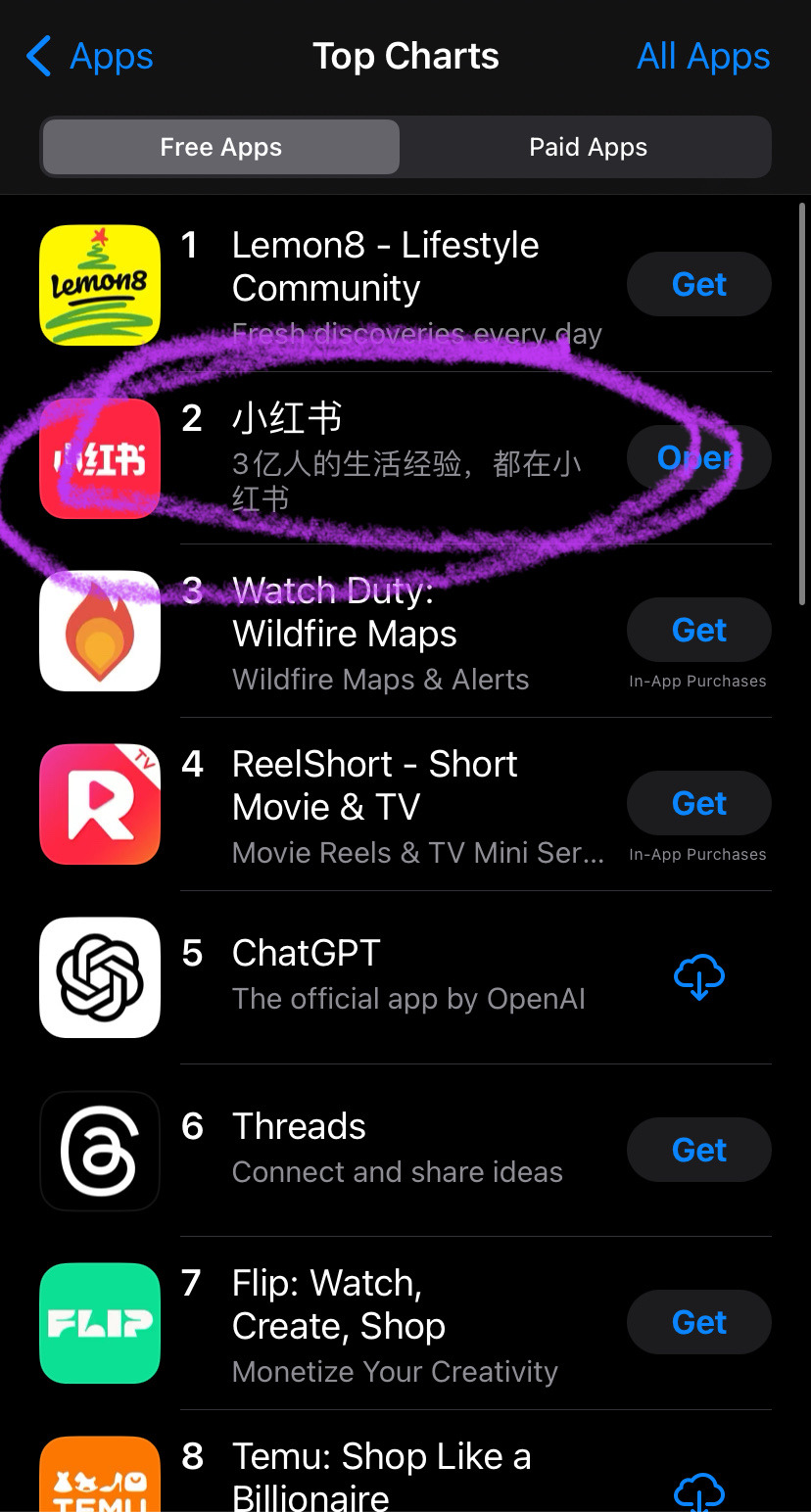
Tiktok as a community has chosen to collectively migrate TO a chinese owned app that is purely in Chinese out of utter spite and contempt for meta/x and the gov that is backing them.
My fyp is a mix of “i would rather mail memes to my friends than ever return to instagram reels” and “i will xerox my data to xi jinping myself i do not care i share my ss# with 5 other people anyway” and “im just getting ready for my day with my chinese made coffee maker and my Chinese made blowdryer and my chinese made clothing and listening to a podcast on my chinese made phone and get in my car running on chinese manufactured microchips but logging into a chinese social media? Too much for our gov!” etc.
So the government was scared that tiktok was creating a sense of class consciousness and tried to kill it but by doing so they sent us all to xiaohongshu. And now? Oh it’s adorable seeing this gov-manufactured divide be crossed in such a way.
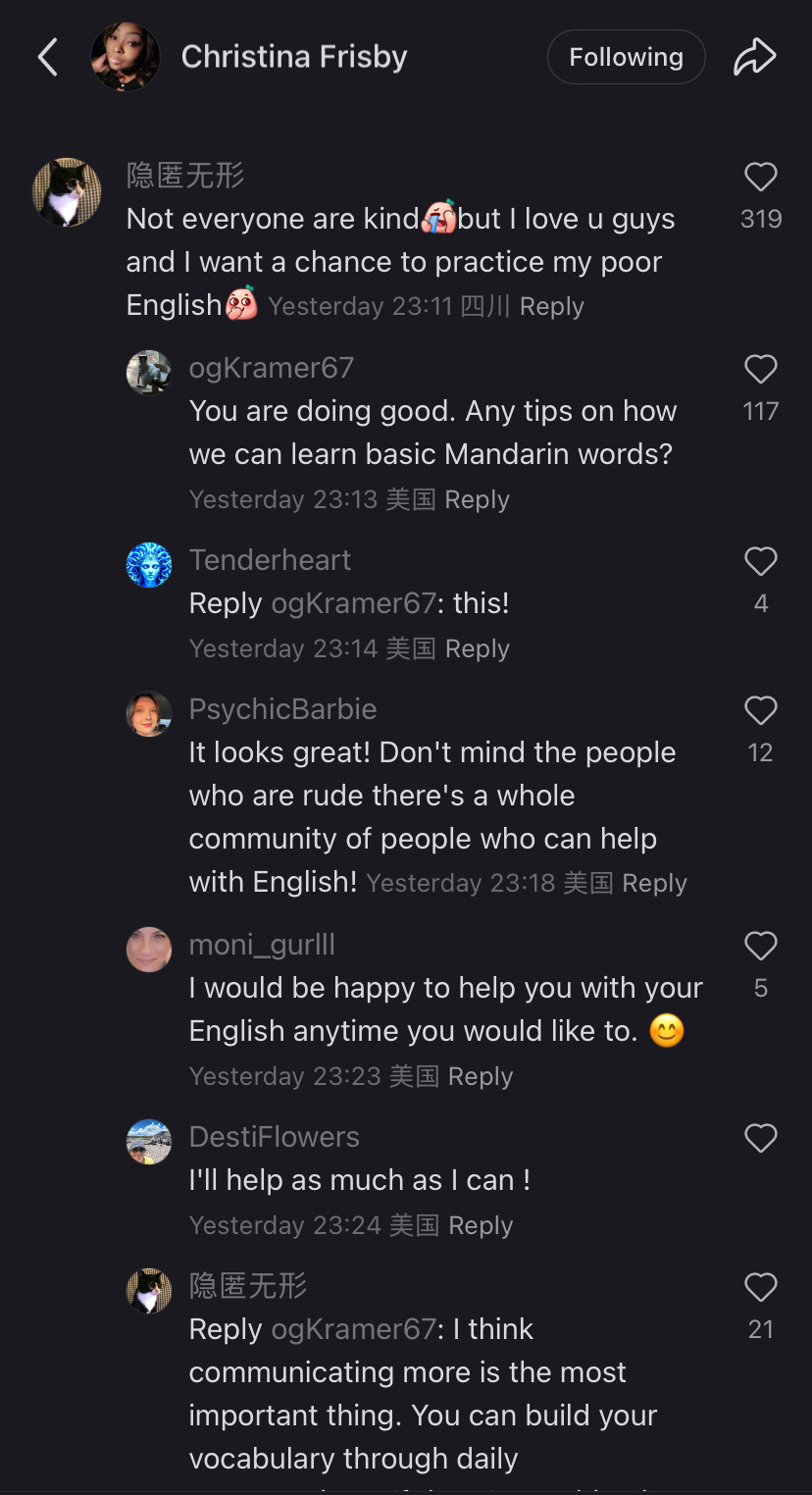
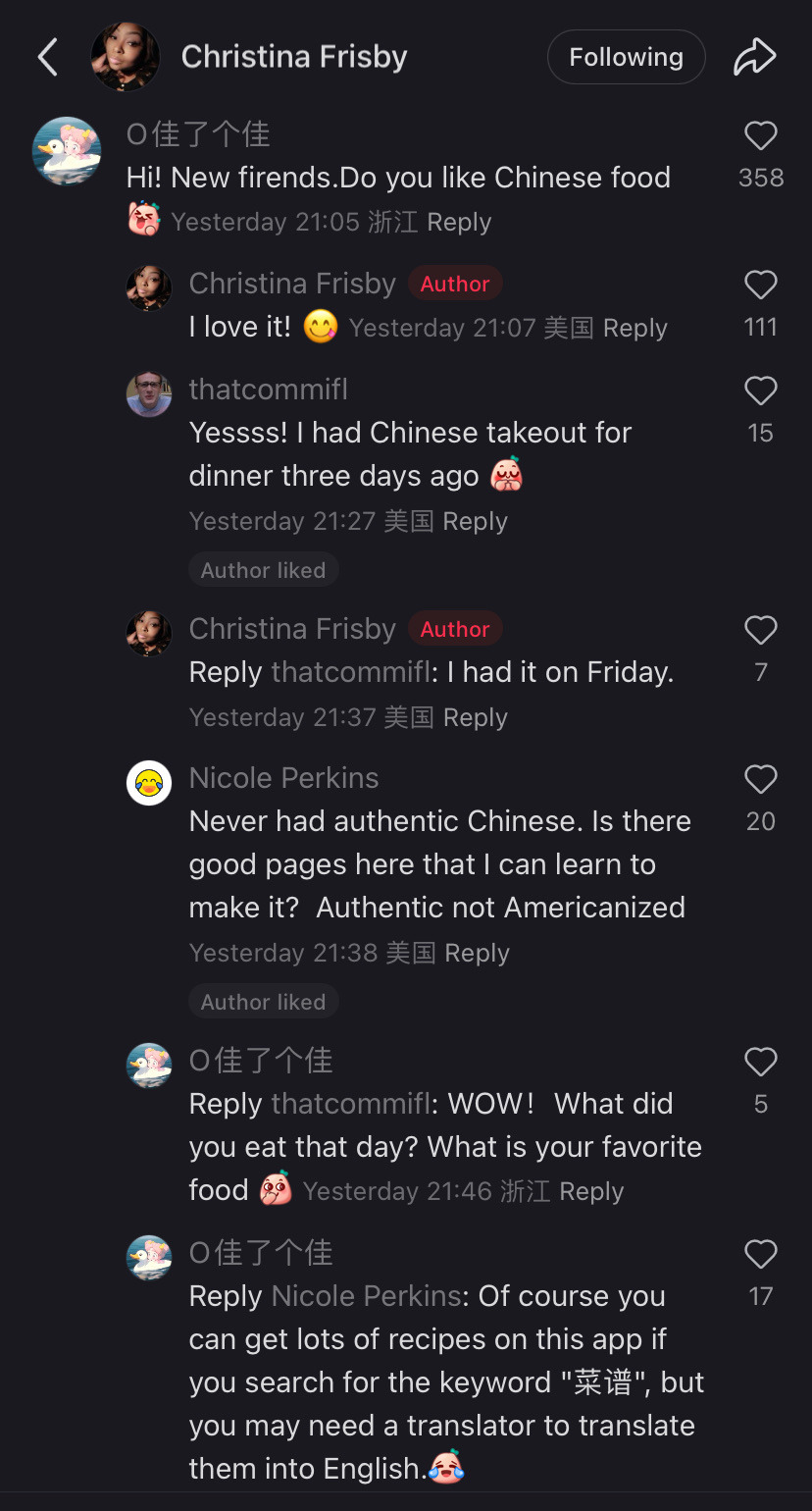

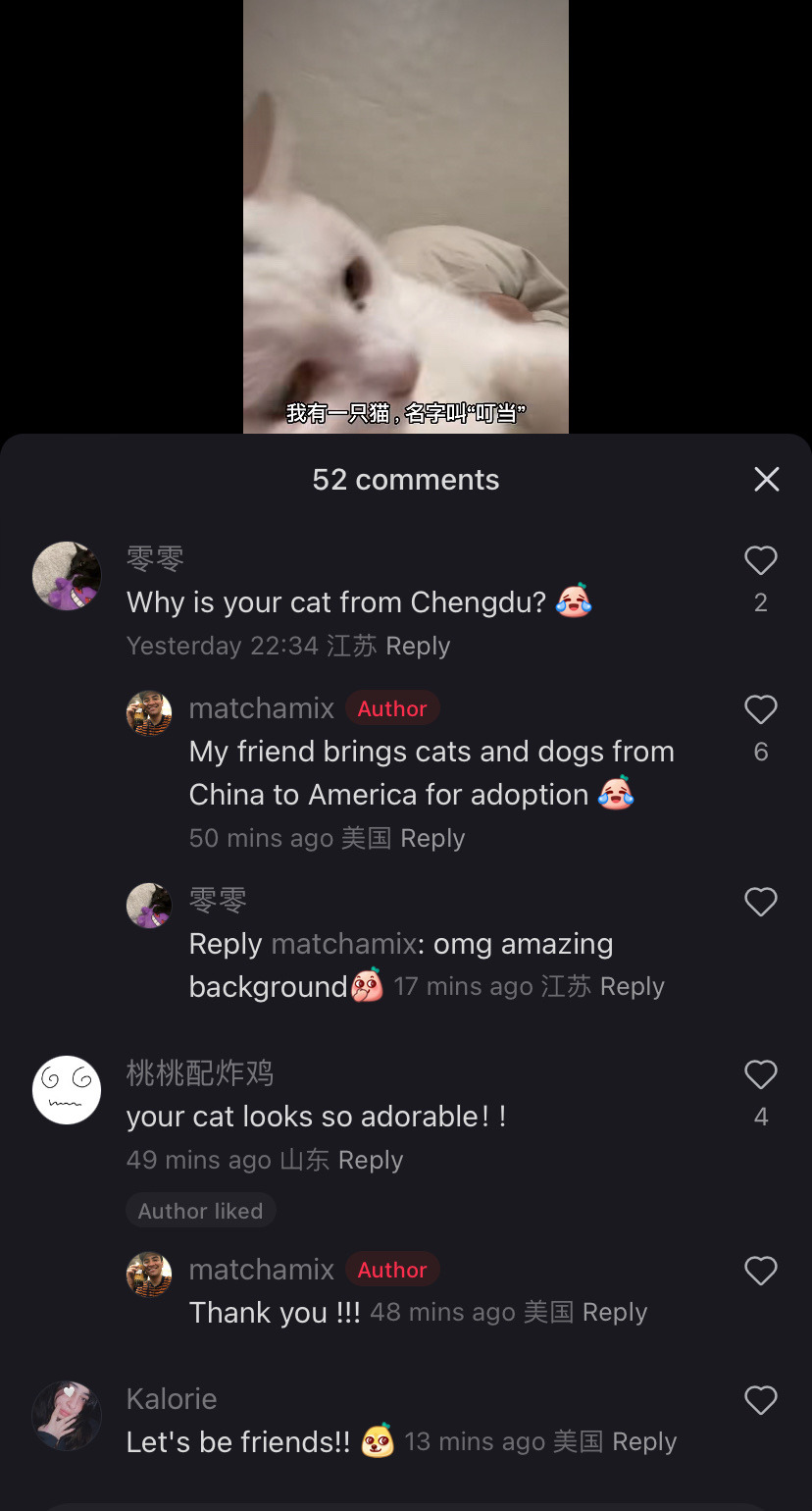

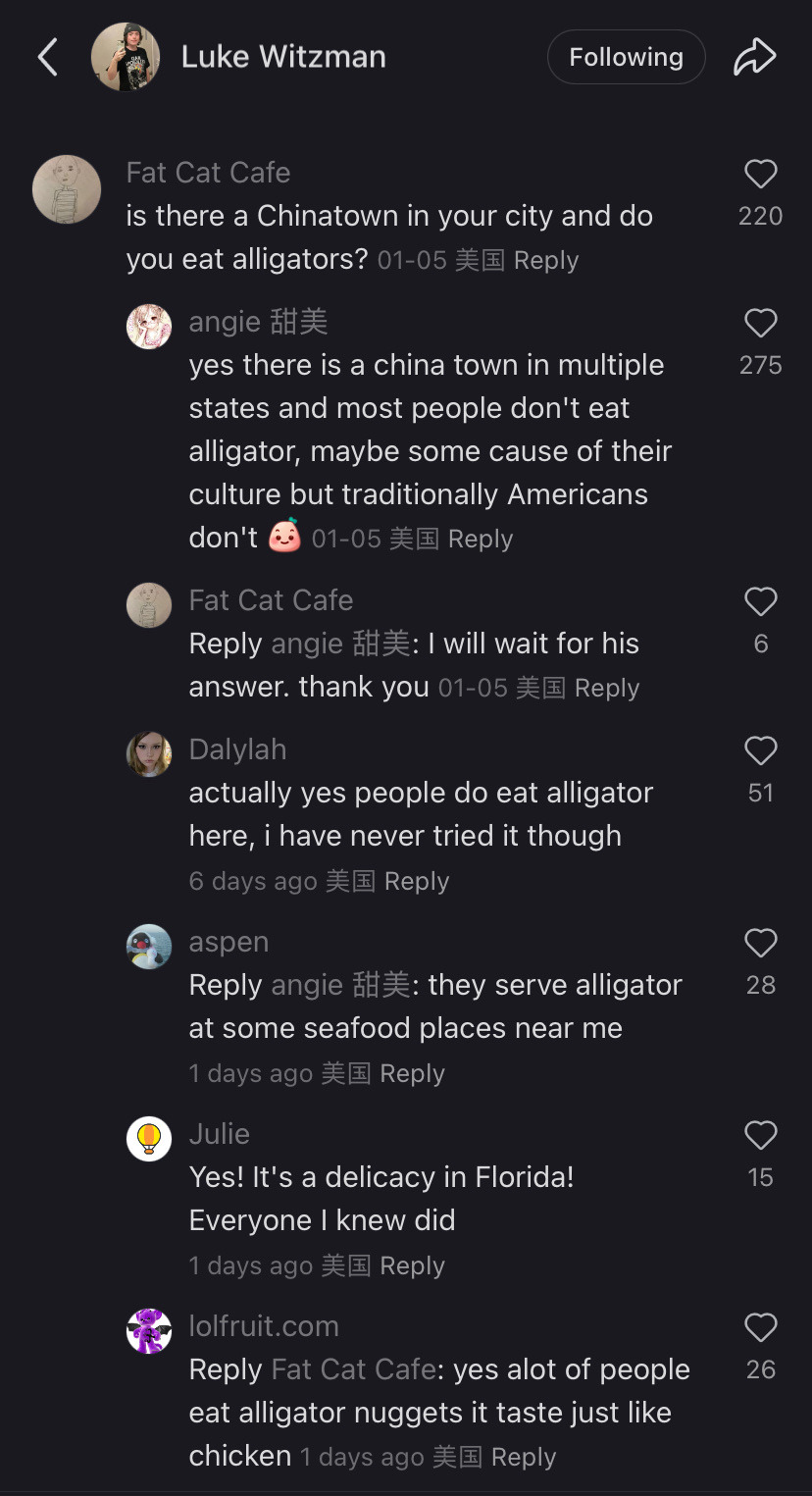
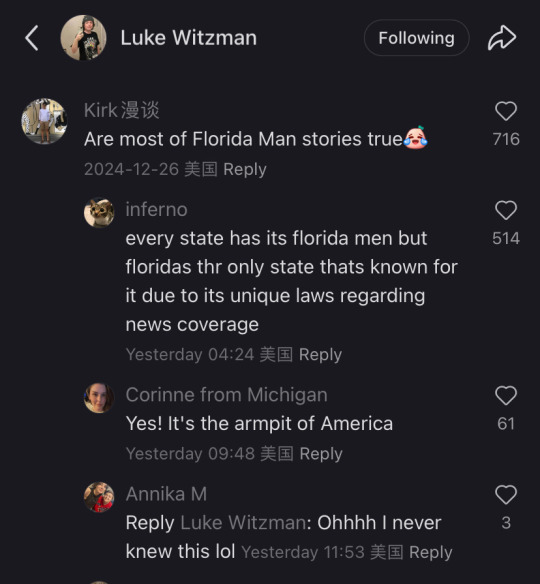
This is adorable and so not what they were expecting. Im sure they were expecting a reluctant return to reels and shorts to fill the void but tiktokers said fuck that, we will forge connections across the world. Who you tell me is my enemy i will make my friend. That’s pretty damn cool.
#tiktok ban#xiaohongshu#the great tiktok migration of 2025#us politics#us government#scotus#ftr tiktok is owned primarily by private investors and is not operated out of china#and all us data is stored on servers here in the us#tiktok also employs 7000 us employees to maintain the US side of operations#like they’re just lying to get us to shut up about genocide and corruption#so fuck it we’ll go spill all the tea to ears that wanna hear it cause this country is not what its cracked up to be#we been lied to and the rest of the world has been lied to#if scotus bans it tomorrow i can’t wait for their finding out#rednote
40K notes
·
View notes
Text
WPS News Article: WPS News Moves Away from X/Twitter Amid Controversy Surrounding Elon Musk's Ownership
By, Cliff Potts, WPS News, Editor-in-ChiefBaybay City | January 14, 2025 In a decisive move, WPS News announces that it will remove itself from X/Twitter effective January 20, 2025, at 12:00 AM PhST. This comes in response to numerous concerns regarding Elon Musk’s acquisition of the platform and its implications for small businesses and free speech. Since Musk’s takeover, the platform has…
#corporate governance#disinformation#election integrity#Elon Musk#Federal Trade Commission#free speech#political manipulation#small businesses#Social Media#Transparency#WPS News#X/Twitter
0 notes
Text
Meta plănuiește introducerea profilurilor AI pe Facebook: oportunitate sau distopie?
Conform dezvăluirilor recente publicate de Financial Times, Meta explorează posibilitatea de a introduce profiluri controlate de inteligență artificială (AI) pe platforma Facebook. Aceste conturi ar putea interacționa cu utilizatorii, iniția cereri de prietenie și posta conținut, oferind impresia unor persoane reale. Oficial, pentru îmbunătățirea experienței utilizatorilor Meta susține că această…
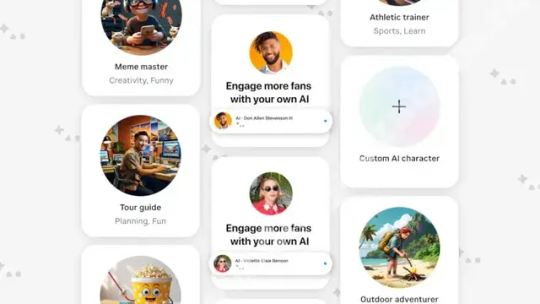
View On WordPress
#AI bots#AI marketing#AI profiles#artificial intelligence#bam#boți AI#Connor Hayes#diagnosis#diagnoza#digital transparency#etică tehnologică#facebook#fake news#german#inteligenta artificiala#marketing AI#meta#neamt#profiluri AI#roman#social media#social media future#știri false#tech ethics#transparență digitală#viitor social media
0 notes
Text
#Case Study#Creator Rights#Data Transparency#Digital Suppression#facts#Free Speech#life#Monetization Challenges#Podcast#serious#Shadow Banning#Social Media Accountability#Social Media Platforms#straight forward#truth#upfront#website#X Data Exports
0 notes
Text
14✨The Dark Side of Algorithms: Fake Accounts and AI-Driven Manipulation in Social Media
As AI continues to integrate itself into the fabric of modern life, the ethical challenges surrounding its use become increasingly critical. Nowhere is this more evident than in the world of social media, where artificial intelligence is being used to create fake accounts, skew public discourse, and promote harmful content for the sake of engagement. Platforms like Facebook, Twitter (X), and…

View On WordPress
#AI algorithms#AI algorithms in social media#AI and compassion#AI and ethics#AI and hate speech#AI and human influence#AI and misinformation#AI and public discourse#AI and transparency#AI and truth#AI for the greater good#AI impact on society#AI in social media#AI manipulation#AI responsibility#AI-driven manipulation#AI-generated content#algorithm accountability#corporate responsibility AI#ethical AI#Facebook fake accounts#fake accounts#Nexus book#social media bots#Twitter bot accounts#Yuval Noah Harari
0 notes